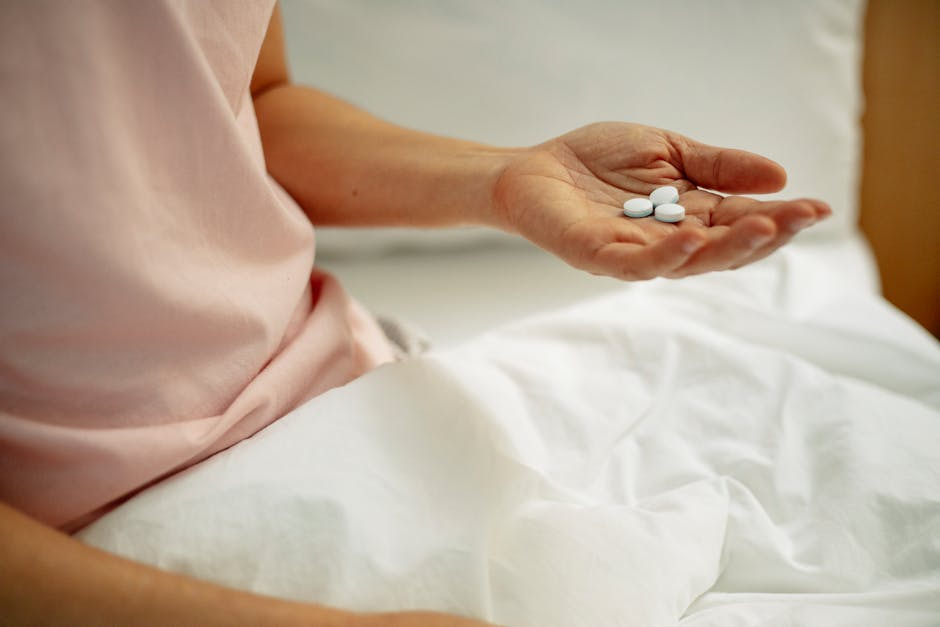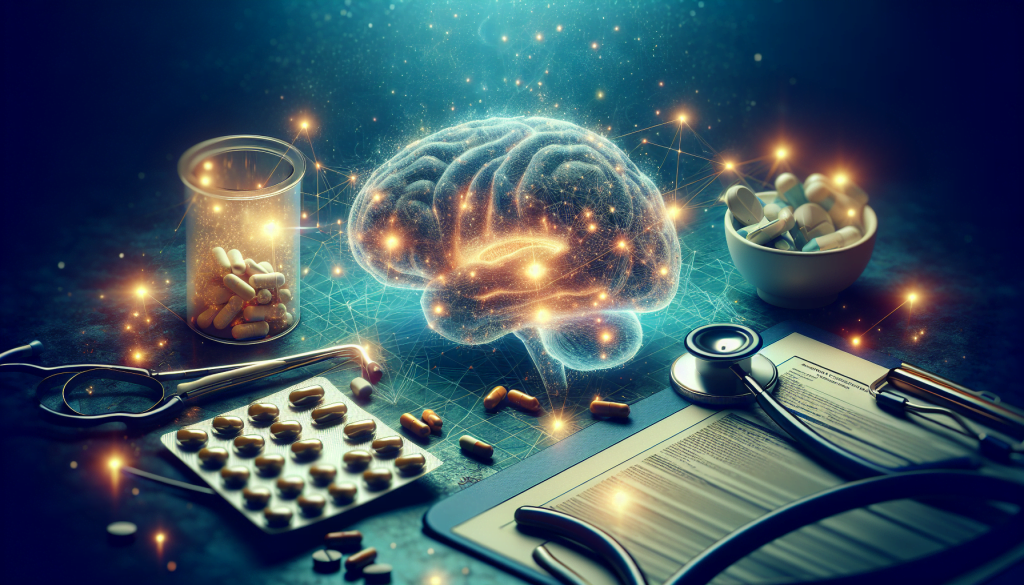The world of mental health has seen significant advancements in the treatment of Generalized Anxiety Disorder (GAD), a condition that affects millions worldwide. With the introduction of new pharmacological treatments, the exploration of psychedelics, and the establishment of specialized anxiety clinics, the future looks promising for those living with GAD. Let’s delve into these exciting developments and understand why they matter.
Key Takeaways
- Introduction of multimodal antidepressants in the treatment of GAD
- The emerging role of psychedelics in managing anxiety
- The rise of specialized anxiety treatment clinics
- The importance of continuous research and education in the field of mental health
Introduction to Generalized Anxiety Disorder (GAD)
Definition and Symptoms
Generalized Anxiety Disorder, often abbreviated as GAD, is a chronic mental health condition characterized by excessive and persistent worry about everyday situations. Symptoms include restlessness, fatigue, difficulty concentrating, irritability, muscle tension, and sleep disturbances. It’s a common disorder, affecting about 6.8 million adults in the U.S. alone.
Current Standard Treatments
Psychotherapy
Psychotherapy, particularly cognitive-behavioral therapy (CBT), is a common treatment for GAD. It helps patients identify, understand, and change thought and behavior patterns that lead to anxious feelings, thereby reducing the symptoms of GAD.
Medications
Medications, including antidepressants, benzodiazepines, and buspirone, are often used in conjunction with psychotherapy. These drugs can help control the physical symptoms of anxiety, such as trembling, sweating, and a racing heartbeat.

New Pharmacological Advances in GAD Treatment
Introduction of Multimodal Antidepressants
Vortioxetine and its efficacy in treating anxiety symptoms
One of the latest advancements in the treatment of GAD is the introduction of multimodal antidepressants, such as Vortioxetine. This medication has shown promise in reducing anxiety symptoms by affecting several different neurotransmitter systems in the brain.
Development of MM-120
Overview of topline data from recent studies
Another exciting development is the creation of MM-120, a novel drug currently undergoing clinical trials. Preliminary data suggests that MM-120 could be a game-changer in the treatment of GAD (source).
Implications for future treatment protocols
If the promising results from early trials hold up, MM-120 could soon become a standard part of treatment protocols for GAD, offering hope to those who have not responded to traditional treatments.

Emerging Role of Psychedelics in Anxiety Management
Clinical Trials Involving LSD
Initial findings on effectiveness
In a surprising twist, psychedelics like LSD are being explored as potential treatments for GAD. Early clinical trials have shown that LSD, administered under controlled conditions, can significantly reduce anxiety symptoms (source).
Safety and regulatory considerations
While these findings are exciting, it’s important to note that the use of psychedelics in treating mental health disorders is still in its infancy. More research is needed to fully understand the safety and efficacy of these substances.
Broader Implications of Psychedelics
Potential shift in treatment paradigms
The use of psychedelics could represent a paradigm shift in the treatment of GAD and other mental health disorders. If further research confirms their effectiveness, we could see a significant change in how these conditions are treated.
Need for real-world evidence to confirm early results
However, it’s crucial to remember that early results, while promising, are just that – early. Real-world evidence is needed to confirm these findings and determine the best ways to integrate psychedelics into treatment plans.

Specialized Anxiety Treatment Clinics
Tailored Treatment Approaches
Example of care at institutions like the Mayo Clinic
Specialized anxiety treatment clinics, like the Mayo Clinic, are becoming more common. These clinics offer tailored treatment plans that take into account the individual’s specific symptoms, lifestyle, and other factors. This personalized approach can lead to better outcomes for patients (source).
Benefits of Specialized Care
Personalized treatment plans
At specialized clinics, treatment plans are not one-size-fits-all. Instead, they are designed to meet the unique needs of each patient, leading to more effective management of GAD symptoms.
Integrated support systems
These clinics also offer integrated support systems, providing patients with access to a team of professionals who can help manage their condition. This can include therapists, psychiatrists, and other healthcare providers.
Importance of Continuous Research and Education
Impact on Diagnosis and Treatment Options
Continuous research and education are crucial in the field of mental health. They can lead to better diagnostic tools, more effective treatments, and a deeper understanding of conditions like GAD. This, in turn, can improve the quality of life for those living with these disorders.
Role in Enhancing Patient Care
Education of healthcare providers
Education is not just important for patients – it’s also crucial for healthcare providers. By staying up-to-date on the latest research and treatment options, providers can offer the best possible care to their patients.
Awareness and resources for patients and families
Education can also empower patients and their families. By understanding their condition and the available treatment options, they can make informed decisions about their care. Resources like our articles on managing anxiety and panic attacks and strategies for coping with anxiety can be invaluable tools in this process.
In conclusion, the field of mental health is constantly evolving, with new treatments and approaches emerging all the time. By staying informed and open to these advancements, we can continue to improve the lives of those living with Generalized Anxiety Disorder.
Unraveling the Mysteries: FAQ on Latest Advancements in Treating Generalized Anxiety Disorder
What are the latest medications for treating Generalized Anxiety Disorder (GAD)?
Recent advancements in medications for GAD include the development of selective serotonin reuptake inhibitors (SSRIs) and serotonin-norepinephrine reuptake inhibitors (SNRIs) that are more targeted and have fewer side effects. Drugs like Escitalopram (Lexapro) and Venlafaxine (Effexor) are at the forefront. Additionally, there’s ongoing research into the use of ketamine and CBD for treatment-resistant cases, showing promising early results.
How has therapy evolved for treating GAD?
Therapy for GAD has seen significant advancements with the integration of technology. Cognitive-behavioral therapy (CBT) remains the cornerstone, but it’s now often delivered via online platforms, increasing accessibility. Techniques like virtual reality exposure therapy are being explored to simulate environments that trigger anxiety, helping patients learn coping mechanisms in a controlled setting.
Are there any new natural remedies or supplements proven to help with GAD?
While traditional treatment remains the most effective, there’s growing interest in natural remedies and supplements. Recent studies have shown that omega-3 fatty acids, magnesium, and herbal supplements like Ashwagandha and Lavender oil may have a calming effect and reduce symptoms of anxiety. However, it’s important to consult with a healthcare provider before starting any supplement, as they can interact with medications.
What role does diet play in managing GAD?
Diet plays a significant role in managing GAD. Research suggests that a diet high in fruits, vegetables, whole grains, and lean protein can help reduce anxiety symptoms. Foods rich in omega-3 fatty acids, like salmon and flaxseeds, are particularly beneficial. Conversely, reducing caffeine and sugar intake can help minimize anxiety triggers.
Can exercise really help with GAD, and if so, what type is most effective?
Exercise is a powerful tool for managing GAD. It helps release endorphins, which are natural mood lifters, and reduces levels of the body’s stress hormones, such as adrenaline and cortisol. Aerobic exercises, like walking, running, and swimming, have been found to be particularly effective. Consistency is key, with most recommendations suggesting at least 30 minutes of moderate exercise most days of the week.
What is the impact of sleep on GAD, and how can one improve sleep quality?
Sleep and GAD have a bidirectional relationship; poor sleep can exacerbate anxiety, and anxiety can lead to poor sleep. Improving sleep hygiene is crucial for managing GAD. This includes establishing a regular sleep schedule, creating a restful environment (cool, dark, and quiet), limiting screen time before bed, and avoiding caffeine and heavy meals in the evening.
How is technology being used to treat GAD?
Technology plays an increasingly important role in treating GAD, from teletherapy and online support groups to apps designed to teach relaxation techniques like mindfulness and deep breathing. Wearable devices that monitor physiological responses and provide biofeedback are also being explored, helping individuals recognize and control their anxiety symptoms.
What is the future of GAD treatment?
The future of GAD treatment looks promising, with a focus on personalized medicine. This includes genetic testing to determine the best medication and dosage for an individual, and the development of new therapies targeting specific brain pathways. Additionally, the integration of artificial intelligence in diagnosing and monitoring GAD could further enhance treatment outcomes by providing more precise and tailored treatment plans.



